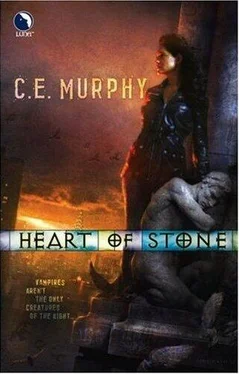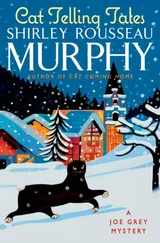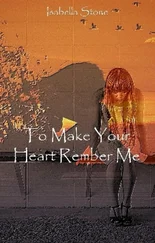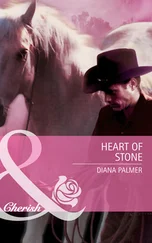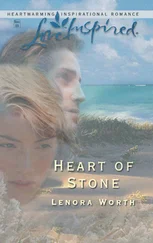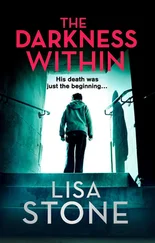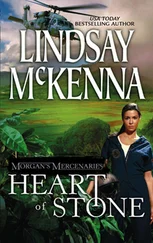“How?” Margrit wrapped her hand around her left arm again, holding it against her body. “How can you be his daughter?”
Ausra clicked her tongue. “Didn’t we just go through this? Mommy and Da-”
“You’re the first witness.” Shocked recognition flooded Margrit, washing pain away for a moment. “You’re the one who reported Alban at the scene of the crime.”
Ausra smiled. “And you jumped right on my bandwagon, didn’t you? Faster than I’d even hoped. I thought I’d have to go round and round, waiting for you to join the game. I didn’t count on the Gray woman dying, though. I was afraid you’d lose the scent. I had to go to certain extremes. You do have my mother’s stone, don’t you?” she inquired politely. “I’ll want that back before you die.”
“Janx has it.” Margrit’s lie sounded thick to her own ears. “Why don’t you go get it from him?”
Acidic laughter cut the cold air. “Janx? The dragonlord? How would he get it? Your detective should have brought it to you.”
Margrit managed a laugh of her own, edging back half a step. She hardly imagined she’d escape, but the longer a guilty client talked, the more likely she was to say something damning, or for the circumstances to change. “Tony wouldn’t have shown it to me, Ausra. You think I’m important to this case. He didn’t. He’d have had no reason to. Anyway, somebody working for Janx took it from the scene before Tony ever saw it. Janx showed it to me last night. That’s why I thought you were Hajnal. I thought she’d lost her mind and was killing people. I didn’t count on a crazy daughter.” Flippancy helped keep Margrit’s mind off the white-hot pain in her arm, and she’d pulled back a few steps without Ausra stopping her. Maybe she could run.
Outrun a gargoyle. The thought was ludicrous enough to make her smile.
“She wasn’t pregnant,” Alban whispered. “She never told me.”
“Do you want to know?” Ausra demanded. “Do you really want to know? Shall I share the memory, Father?”
“No…” Margrit lifted her good hand, as if she could hold off the wall of memory that rose up and threatened to drown her.
Bleeding from a dozen gunshot wounds, her wings in tatters, she crawled toward the east, leaving blood and water smeared together on the cobblestones. She shoved herself upward as rain-heavy clouds lightened in color, and howled out her life to the rising sun. Dawn, when it came, brought a blissful recession of agony, healing stone offering a last chance at life.
She woke weak, her breathing difficult. A man sat beside her, a human, his eyes dark and thoughtful. She snarled, lunging for him, but chains brought her up short, manacles bound into her very flesh at wrist and ankle, around her throat. He didn’t move, only sat there, utterly without fear.
Memory blurred. She grew stronger, testing her chains the same way at each sunset. He left her food, starting with raw meat, then finer items, experimental. She slept, even during the nights, during the hours that were normally hers to live. She broke a chain, if not the iron bound to her skin, and he began drugging her food. She could smell it, but had no choice: it was eat what he gave her or starve, and her body was too weak to go for days and weeks without meals.
Her wings didn’t heal. He stitched them together, and the skin slowly grew back, but they were thick and heavy, and when she moved them, they barely responded.
Worse than the thickness of her wings was the growing thickness of her belly. A burning anger coiled above the child growing inside her, waiting for the chance to break free and destroy the man who had captured her.
Waiting, with desperate hope, for Alban to find her.
Outside of the memory, Alban cried out, agonizing shout that brought Margrit to her knees, sobbing.
She knew it wouldn’t happen. She had told him to run, had been glad when he did. She knew he would wait, too, longer than they’d agreed. She would have. If she could only escape, even into the memories, she could find him; find help.
But iron bound her, and nothing in the gestalt had warned her that in binding, it cut away her natural ability to reach the shared history that was her people’s greatest legacy. In six hundred years of living, she had never felt so alone. Waking every night to the bone-throbbing cold of the iron chains was bad; waking unable to find her way into the comfort of mental touch drove her slowly mad. At first she knew it, and fought it, but as weeks turned to months exhaustion defeated her strength, burned away her anger, and left her raw-voiced with shrieking out her solitude. Reason failed; worse still, the reason to retain sanity failed. Once, she’d known that a gargoyle’s death passed memories to the next nearest of her kind, making certain that no history was lost forever. A baby’s mind wasn’t meant to take that kind of influx of experience, even from a composed elder who could control the sharing. A child burdened with the chaos that had become Hajnal’s mind could be scarred beyond repair.
She rarely recalled that, toward the end. Sparks of panic rose up with no explanation behind them, making her fear and weariness that much worse. And then new life came forth, screaming, frightened, cold, entering the world with the last of her mother’s strength and all of her mother’s madness.
The memories became Ausra’s own, a solemn child playing before the fireplace. “Tell me about Mama, Papa,” she begged, and Hajnal’s captor smiled tolerantly and told her a story that gave lie to the little girl’s nightmares.
“I thought everyone played all night and turned to stone in the day,” Ausra whispered beneath the rush of memory. “I was seven when I learned otherwise.”
Taunting laughter, edged with fear, and a blue-eyed boy at church hissing “Nightwalker!” to her during the evening service.
“You aren’t like the other children, no,” her father told her later that night. “You’re different, but you’re strong because of those differences. When you’re older, we’ll try to help you seem more like the others, but remember, my girl.” He crouched, smiling at her. Ausra’s reflection shone in his eyes, dark-eyed child looking back with equal parts trust and hope. “Remember your strength.
“It’s dawn,” he murmured to her years later. “Hold yourself, daughter. Face the sunlight. It is in you.”
And Ausra, leaning into the dawn, did. Watched the sun break the horizon, coloring the sky gold and red, its light searing her eyes. She flung her hands up, crying with pain, and stone swept over her.
But the next morning she did it again.
Alban made a strangled noise, stretching out his hands as if he could touch the sunrise himself. “It isn’t possible,” he whispered into memory. Ausra laughed, bitter sharp sound.
“Maybe not for you, but I have strength, Father. More than you. More than my mother.”
Her father, dying, caught her hand, surprising strength in the old man’s hands. “I’ve never known,” he told her, “what your mother was. All I have of hers is her name, and this.” His hands shaking suddenly, he dug out the sapphire stone, dropping it into her hands. “Find your heritage,” he whispered. “Go with a mortal father’s love.”
“I searched,” Ausra said, voice brittle. “I searched for decades, Father, before I learned about the gargoyles.”
“You should have been able to enter the memories,” Alban murmured, sorrow and bewilderment mixed in his voice. Margrit shivered with the sound of it: centuries of regret seemed to wash through his words, as if he yearned to heal the younger gargoyle’s scars any way he could.
“Mother couldn’t. The iron crippled her, and I was born cut off from your precious histories. I was alone until I finally found someone like me. Another gargoyle, who told me my father’s name. Alban Korund, too yellow to face death with my mother, too feeble to protect her.”
Читать дальше
Конец ознакомительного отрывка
Купить книгу
